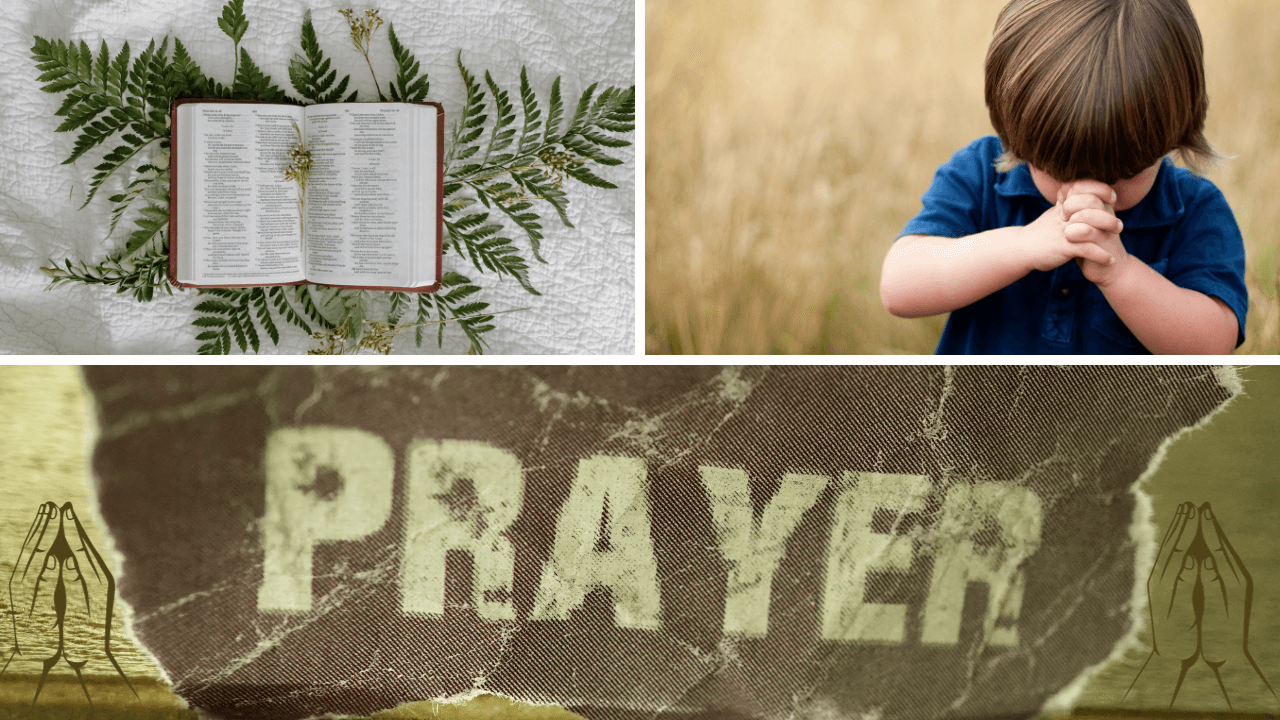Welcome back to Part II of our Grief Series. In Part I, our first article, we talked about understanding the different forms of grief. This article, Part II, delves into effective methods and strategies for overcoming grief and embracing recovery, offering support and insights for those dealing with life's losses.
Grief is a natural and deeply personal response to loss, manifesting in various forms and intensities. It's an emotional process that each individual experiences uniquely, shaped by personal experiences, relationships, and coping mechanisms.
Whether it's the loss of a loved one, the end of a significant relationship, or any other life-altering change, grief can envelop us in a myriad of emotions. Understanding that there is no 'one-size-fits-all' approach to grieving, this article aims to provide a compassionate guide to help you navigate through your unique grief journey, offering tools and perspectives to aid in your healing and recovery.
Understanding Grief
Understanding grief is crucial in recognizing and validating the emotions that come with loss. As outlined in the "Bertie's Buzz" article referenced above as well as an article entitled "Coping with Grief and Loss," grief is a natural, albeit complex, response to loss.
Common causes of grief extend beyond the death of a loved one, encompassing a range of significant and major life changes and losses. These can include any loss in life, even the loss of cherished dream. Each loss can trigger the profound emotional response known as grief.
The concept of the five stages of grief, introduced by Elisabeth Kübler-Ross, offers a framework to understand this process. These stages include:
- Denial, where one struggles to accept the reality of the loss;
- Anger, which involves feelings of frustration and helplessness;
- Bargaining, a stage of making deals or promises in hopes of reversing the loss;
- Depression, marked by deep sadness and reflection; and finally,
- Acceptance, where one comes to terms with the loss and its impact on life.
It's important to note that these stages are not linear and may not be experienced by everyone in the same way or order. They only serve as a guide to understanding the myriad emotions and reactions that come with grieving, emphasizing the deeply personal and individual nature of the process.

Myths vs. Facts About Grieving
Grief is a complex and deeply personal experience and it is often shrouded in misconceptions that can hinder the healing process. Understanding the myths and facts about grieving is essential for anyone navigating this difficult journey.
According to The Recovery Village, a common myth is the belief that grief and mourning are the same. In fact, grief is the internal emotional response to loss, encompassing feelings like sadness, anger, and numbness.
Mourning, on the other hand, is the external expression of that grief, which can vary greatly across different cultures and individuals. It's a visible act, such as wearing black clothing or participating in certain rituals, reflecting how one processes their internal grief.
The Recovery Village also points out this myth:
"Myth: Grief gets better over time.
Fact: Grief doesn’t follow a set timeline.
The old saying “time heals all wounds” speaks to the enduring power of time and change. But this adage is better used in the context of a break-up rather than in the loss of a loved one.
While the passing of time has been noted to decrease the intensity of emotional pain felt over bereavement, it does not truly heal the pain. Time and sometimes distance from the thing that is causing grief can be beneficial, but this alone doesn’t guarantee grief will get better.
What’s important are the steps the bereaved take to overcome the acute grief, which may take a considerable amount of time.
The passing of time can diminish the intensity and frequency of grief. However, certain occasions or times of the year such as anniversaries can reopen emotional wounds. Grief can come and go over the course of a lifetime."
Another myth is the misconception that women grieve more than men is also debunked. Grief affects all people, regardless of gender, and each individual processes it in their own way. Cultural, personal, and societal factors can influence how grief is expressed, but the intensity and validity of the experience are not gender-specific.
It is very important that we acknowledge and respect the unique ways in which each person copes with loss.
The Physical and Emotional Impact of Grief

The journey through grief is not only an emotional ordeal but also a physical one. The impact of grief on the body and mind can be profound and varied, affecting individuals in multiple ways.
Physical Symptoms of Grief
1. Fatigue: One of the most common physical manifestations of grief is an overwhelming sense of tiredness or exhaustion. This isn't just regular tiredness but a deep, bone-weary feeling, a sad fatigue that can make even the simplest tasks feel insurmountable. It's a physical manifestation of the emotional labor of grieving.
2. Insomnia: Many people find that grief disrupts their sleep patterns. This could manifest as difficulty falling asleep, staying asleep, or waking up much earlier than intended. Insomnia during grief can exacerbate other symptoms of a complicated grief, as the body and mind are deprived of the restorative benefits of sleep.
3. Changes in Appetite: Grief can significantly alter eating habits. Some may find they have little to no appetite, while others might turn to food for comfort, leading to overeating. These changes can result in significant weight loss or gain, affecting overall health and well-being.
4. Physical Pain and Discomfort: Grief can also manifest in physical pain, such as headaches, muscle aches, or stomach pains. The stress and tension of grief can lead to physical discomfort, which in turn can impact mental health.
Emotional Symptoms of Grief
1. Sadness: Profound sadness is the most recognizable symptom of grief. It's a deep, pervasive feeling of sorrow that reflects the magnitude of the loss.
2. Guilt: Guilt is a common companion to grief. This might include regret over things said or not said, actions taken or not taken, the right or wrong way of something done, even feeling guilty for surviving when a loved one did not.
3. Fear and Anxiety: Grief can trigger feelings of fear and anxiety. The loss of a loved one can feel overwhelming and make the world seem more unpredictable and dangerous, and the bereaved might feel anxious about the future or fear losing others.
4. Anger: Anger is another common emotional response to loss. This anger can be directed at oneself, at the deceased, at a higher power, or at the world in general. It often stems from feelings of helplessness unresolved grief and frustration over the inability to change what has happened.
Both the physical and emotional impacts of grief are interconnected, each influencing and exacerbating the other. It's important for those experiencing grief to recognize these symptoms as normal and valid parts of the grieving process.
Acknowledging and understanding these symptoms can be the first step in managing them and moving towards healing.
Self-care, seeking support, and allowing oneself to experience these feelings without judgment are crucial in navigating the complex journey of grief.
Coping Mechanisms and Healing Strategies

Acknowledging and Expressing Pain
- The Heart of It: Recognizing and expressing grief is a crucial step in the healing process. Suppressing or denying these feelings often prolongs the pain.
- Take Care of Yourself: Writing in a journal about your feelings, allowing yourself to cry when you need to, or even verbally expressing your emotions to a trusted friend or family member will help. Artistic expressions like painting or music can also be powerful outlets for pain.
The Importance of Self-Care and Maintaining Physical Health
- The Heart of It: Physical health significantly impacts emotional well-being, especially during times of grief.
- Take Care of Yourself: Prioritizing adequate sleep, eating nutritious meals, and engaging in regular physical activity like walking, yoga, or swimming.
Simple activities like taking a bath, reading a book, or practicing mindfulness and meditation can also be beneficial.
Remember, self-care isn't selfish; it's a necessary part of coping and healing.
Engaging in Hobbies and Interests
- The Heart of It: When you feel ready, returning to or discovering new hobbies and interests can provide a sense of normalcy and joy amidst grief.
- Take Care of Yourself: Rekindling interest in a past hobby like gardening, cooking, or crafting can be therapeutic.
Exploring new activities like photography, hiking, or joining a book club can also offer a sense of accomplishment and a way to connect with others.
These activities serve as a reminder that joy and engagement in life can coexist with grief.
Seeking Support: Friends, Family, Support Groups, Therapy
- The Heart of It: Sharing your grief journey with others can provide comfort, understanding, and a sense of community.
- Take Care of Yourself: Talking openly with friends and family about your loss and feelings. Joining a support group, where you can connect with others who have experienced similar losses, can be incredibly validating and helpful.
For some, professional therapy can offer a safe space to process grief with guidance and support. Therapists can provide coping strategies tailored to individual needs and help navigate the complex emotions associated with grief.
Each of these strategies offers a pathway to not only endure grief but to gradually find healing and peace.
It's important to remember that everyone's journey through grief is unique, and what works for one person may not work for another. The key is to be patient with yourself and to try various approaches to find what best supports your healing process.
Navigating Through Life's Milestones After Your Loss
Navigating life after a significant loss involves facing various milestones and dates that can act as powerful reminders of the absence of a loved one. These moments can trigger intense emotions and grief responses, but with thoughtful preparation and meaningful rituals, they can also become opportunities for healing and honoring memories.
Preparing for Grief Triggers: Birthdays, Anniversaries, Holidays
- Understanding Triggers: Recognize that certain dates like birthdays, anniversaries, and holidays will naturally evoke memories and feelings of sadness. Anticipating these dates can help in preparing emotionally.
- Planning Ahead: Consider planning a special activity or ritual for these days. This could be as simple as lighting a candle, visiting a place that was significant to your loved one, or sharing stories about them with friends or family.
- Allowing Emotions: Give yourself permission to experience a range of emotions. It's okay to feel sad, but also okay to find moments of joy or laughter.
- Self-Care: Ensure to engage in self-care during these times. This might mean taking a day off work, spending time in nature, or engaging in a comforting hobby.
(Editor's Note: Below is an outstanding video from Dr. Alan Wolfelt. It's about 12 minutes long so if you don't have time to watch it all now, please save it until you do as he offers some great advice on dealing with grief during the holidays.)
Dr. Alan Wolfelt
Finding New Ways to Honor Memories
- Memorial Gardens: For those with access to a yard, creating a memorial garden can be a beautiful way to honor a loved one. Planting flowers, shrubs, or a tree that reminds you of the person can provide a living tribute. As the garden grows and changes, it can symbolize the ongoing nature of love and memory.
- Indoor Memorials for Apartment Dwellers: For those in apartments, dedicating a small space for a memorial can be equally powerful. This could include indoor plants, photos, and other mementos that hold special meaning. Arranging these items in a specific area creates a sacred space for reflection and remembrance.
- Personalized Rituals: Personal rituals can also be meaningful. This might involve playing their favorite music, cooking their favorite meal, or doing an activity they loved on significant dates.
- Community Involvement: Engaging in community service or charity work in the name of the loved one can also be a way to honor their memory while giving back to others.
These approaches to navigating life's milestones post-loss offer ways to not only to cope with grief and the heightened sense of grief during these times but also to celebrate and honor the lives of those who are no longer physically present.
They serve as reminders that while someone may be gone, their impact and memory continue to live on in the hearts and actions of those they touched.

In conclusion, it's essential to remember that grieving is a deeply personal process that requires time and space. Each individual's journey through grief is unique, and there is no set timeline or 'correct' way to navigate it.
It's important to allow yourself the grace to experience your emotions fully and to understand that healing unfolds at its own pace. Do not hesitate to seek help when the burden feels too heavy; reaching out to friends, family, support groups, or professional therapists can provide invaluable support and guidance.
Remember, healing from grief is a journey, not a destination. It involves gradually learning to live with the loss, integrating it into your life, and finding ways to honor and remember your loved one.
This journey may have its challenges, but it also holds the potential for growth, deeper understanding, and renewed appreciation for life's precious moments. Be patient with yourself, and allow the process of healing to unfold in its own time and way.
Resources and Further Reading
Listed below are more resources for you as you travel this journey of grief. If you have any questions, please contact me and I will be happy to help you.
1. The Compassionate Friends:
- A supportive resource for families who have experienced the death of a child. They offer local chapter meetings, online resources, and special events.
2. Grief.com:
- Offers resources for those who are grieving, including articles, support group information, and advice on dealing with grief.
3. The Center for Loss & Life Transition:
- Led by grief counselor and educator Dr. Alan Wolfelt, this organization offers educational resources, workshops, and training for grieving individuals and bereavement caregivers.
4. What's Your Grief:
- A comprehensive website offering grief education, resources, and a supportive community. They cover a wide range of topics related to grief and loss.
5. National Alliance for Grieving Children:
- Provides support and resources for children and adolescents who are grieving, as well as their families and professionals who serve them.
6. Psychology Today - Finding a Therapist:
- A tool for finding therapists with a specialty in grief, allowing individuals to search by location and other criteria.
7. Crisis Text Line:
- For immediate emotional support, individuals can text with a trained crisis counselor. This can be especially helpful for those who need someone to talk to outside of normal support group or therapy hours.
8. GoodTherapy:
- Offers a therapist finder and numerous articles on coping with grief and loss.
2 Corinthians 1:3-4
Praise be to the God and Father of our Lord Jesus Christ, the Father of compassion and the God of all comfort, who comforts us in all our troubles, so that we can comfort those in any trouble with the comfort we ourselves receive from God.
Thank you for visiting our Christian blog, and we look forward to continued sharing our passion for Christian theology and literature with you!









Member discussion